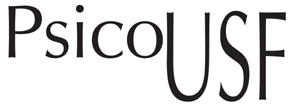Abstract
The memory reports of a given individual may be altered by preceding memory reports of another individual, a phenomenon termed memory conformity. To investigate this phenomenon, 58 undergraduate students were separated in two groups which watched one of two slightly different movies of a crime scene (one included an accomplice). Subsequently, pairs containing one participant from each group discussed the movie, and then participants responded individually whether there was an accomplice in the scene. The frequency of false reports and their confidence for the presence/absence of the accomplice were analyzed. Only false reports of seeing an accomplice were produced (by 31% of those who saw no accomplice), and confidence were as high for these responses as for correct “no-accomplice” responses. The data is consistent with prior findings, and show that confidence on false reports can be high when involving “insertion” of elements to witnessed events.
Key words:
Memory; Memory-conformity; Confidence
